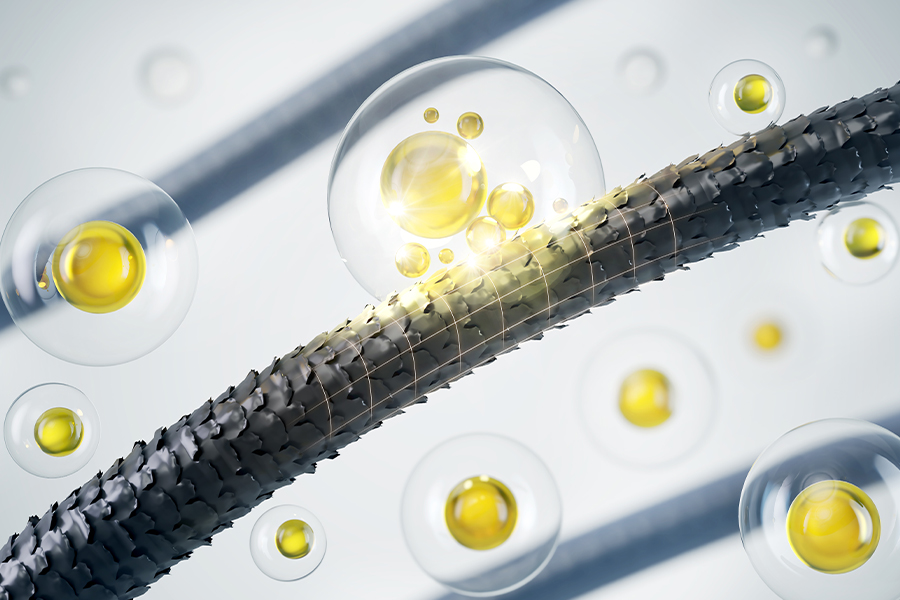How Effective Is Taking Biotin for Hair Growth?

By: Kenra Professional
March 2023
Are you looking for longer and/or thicker hair? You’re not alone! Aren’t we all. Biotin supplements have probably emerged on your radar if you’ve been researching how to obtain the thickest mane, and there are many on the market today.
What is biotin? It’s also referred to as vitamin B7, a water-soluble vitamin essential for your hair, skin, and nail health. Found naturally in many foods, biotin is in eggs, nuts, and whole grains—in addition to being available as a dietary supplement. Biotin is often touted as a miracle solution for hair growth, but how effective is it really? Why is it important for hair growth, and what are the side effects? We’ll cover those questions and more below.

Q: Why is biotin important for hair growth?
A: First and foremost, biotin plays a major role in helping turn your food into energy.
However, it is also vital in the growth and maintenance of our hair as it’s involved in the production of keratin. Keratin is a protein that makes up the structure of your hair. It’s also an active player in the metabolism of fatty acids, which are essential for healthy hair growth.
Q: Can taking biotin supplements promote hair growth?
A: While some studies suggest a link between biotin and hair growth, many of these studies have been small and have not been rigorously designed. There is limited scientific evidence to support the idea that taking biotin supplements can promote hair growth in people who are not deficient in the vitamin.
Q: What are some of the potential side effects of biotin supplements?
A: The good news: Biotin supplements are generally considered safe and well-tolerated. That said, there are some potential side-effects you want to be aware of. Per WebMd, high doses of biotin can interfere with laboratory tests and can lead to false results, so it’s important to let your doctor know if you are taking biotin supplements before undergoing any lab tests. It can also cause insomnia, excessive thirst, and urination in some cases.
Biotin can also interact with certain medications, including those used to treat seizures and lower cholesterol levels. Finally, some people allergic to biotin supplements may experience symptoms such as a rash, hives, and difficulty breathing. If you experience any of these symptoms after taking biotin supplements, you want to seek medical attention immediately.
Q: What are some other ways to promote hair growth?
A: You can do several things, as biotin isn’t quite a miracle solution for hair growth. Eating a healthy diet that is rich in vitamins and minerals (look for vitamin D, iron, and zinc), avoiding hairstyles that put too much tension on your hair (loosen that ponytail!), using a gentle shampoo and conditioner designed for your hair type, avoiding excessive heat styling and chemical treatments, and taking steps to manage stress are all ways to promote healthy hair growth.
With that, now you have the 411 on biotin—it’s an important vitamin for hair health, but there is limited scientific evidence to support the idea that taking biotin supplements can promote hair growth in people who are not deficient in the vitamin. While biotin supplements are generally considered safe, there are some potential side effects to be aware of. And if you really want to increase the benefits as it relates to hair—longer, stronger, and thicker hair—pair your biotin with some folic acid.
Happy hair health!
